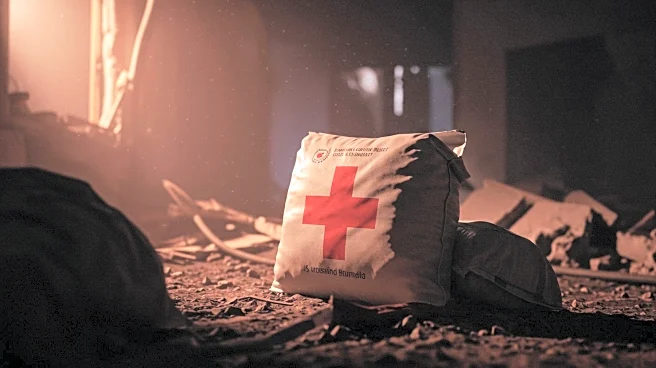What's Happening?
The Red Cross is reportedly intensifying its efforts to engage in dialogue with Hamas to deliver food and medicine to hostages held in Gaza. This development follows a meeting between hostage mothers and the Red Cross President, Mirjana Spoljaric, where the mothers urged the organization to act more decisively. The Red Cross has faced criticism for its perceived insensitivity towards Israeli civilians, including hostages, since the onset of the conflict on October 7, 2023. Despite this, the organization has been recognized for its attempts to maintain communication channels with Hamas, although these efforts have not yet yielded tangible results. The Red Cross operates independently of the UN and has been described by Israeli sources as less problematic than other international organizations.
Why It's Important?
The Red Cross's intensified efforts to aid hostages in Gaza are significant as they represent a potential shift in the humanitarian response to the ongoing conflict. The organization's actions could impact the lives of hostages by providing essential supplies and medical care, which have been lacking. This development also highlights the complex dynamics between international organizations and conflict zones, where humanitarian efforts are often hindered by political and logistical challenges. The involvement of the Red Cross may also influence public perception and diplomatic relations, as it navigates the sensitive task of negotiating with Hamas while addressing the needs of hostages and their families.
What's Next?
The Red Cross is expected to continue its dialogue with Hamas, aiming to establish a mechanism for delivering medicines and food to hostages. The organization may face further challenges in negotiating access and ensuring the safe delivery of supplies. The Israeli government and hostage families will likely monitor these efforts closely, potentially influencing future diplomatic and humanitarian strategies. The Red Cross's actions could also prompt other international organizations to reassess their roles and approaches in similar conflict situations.











